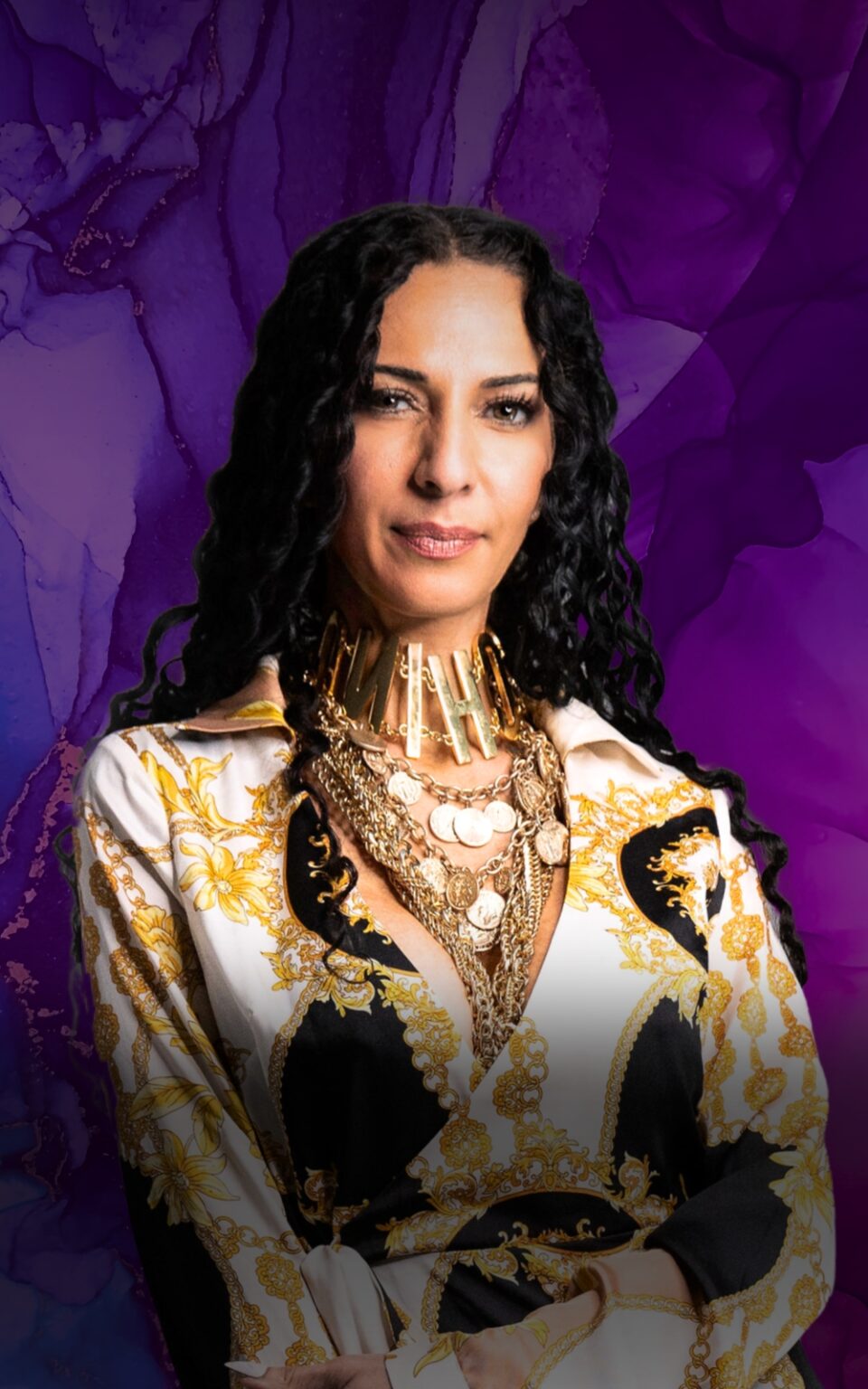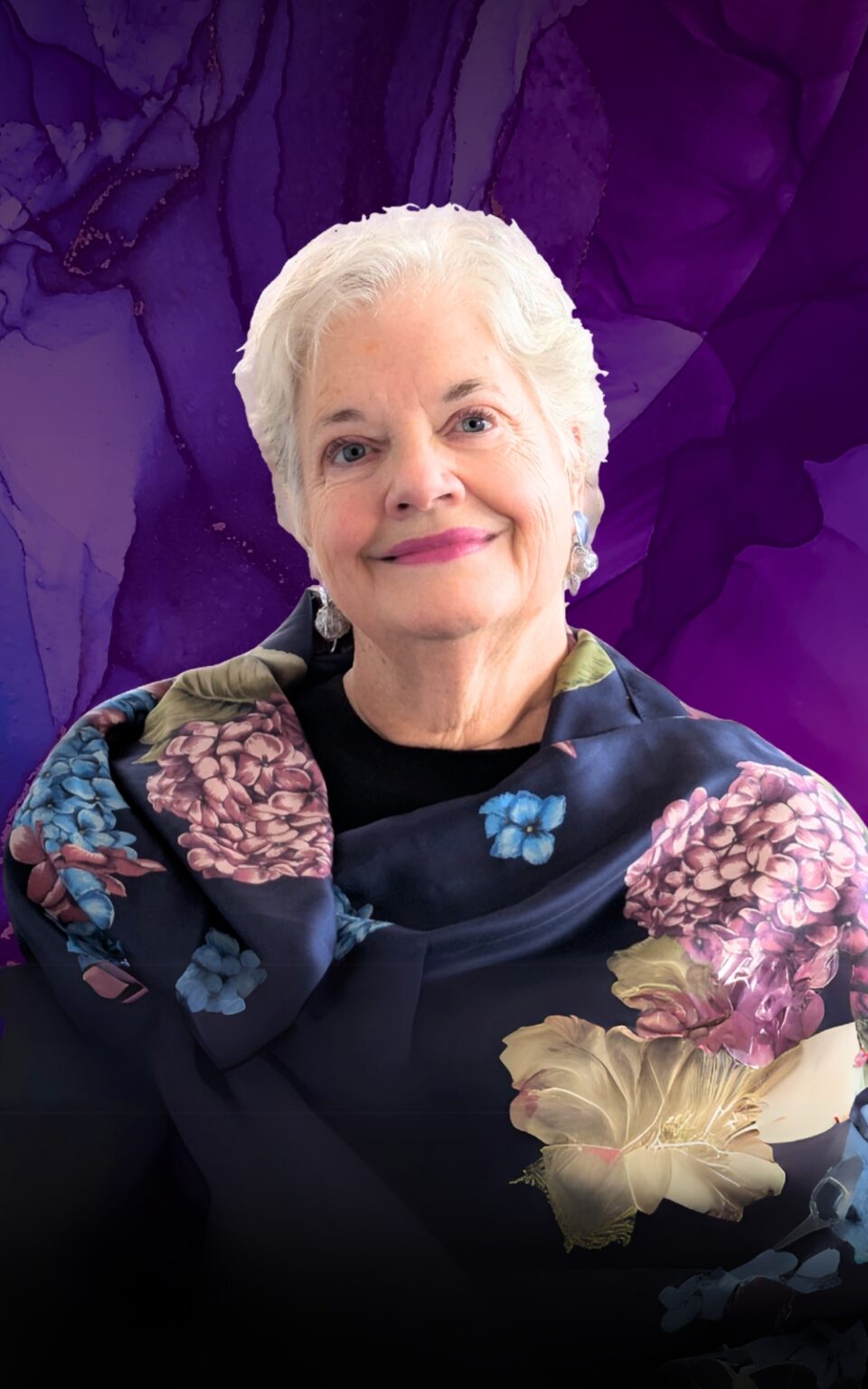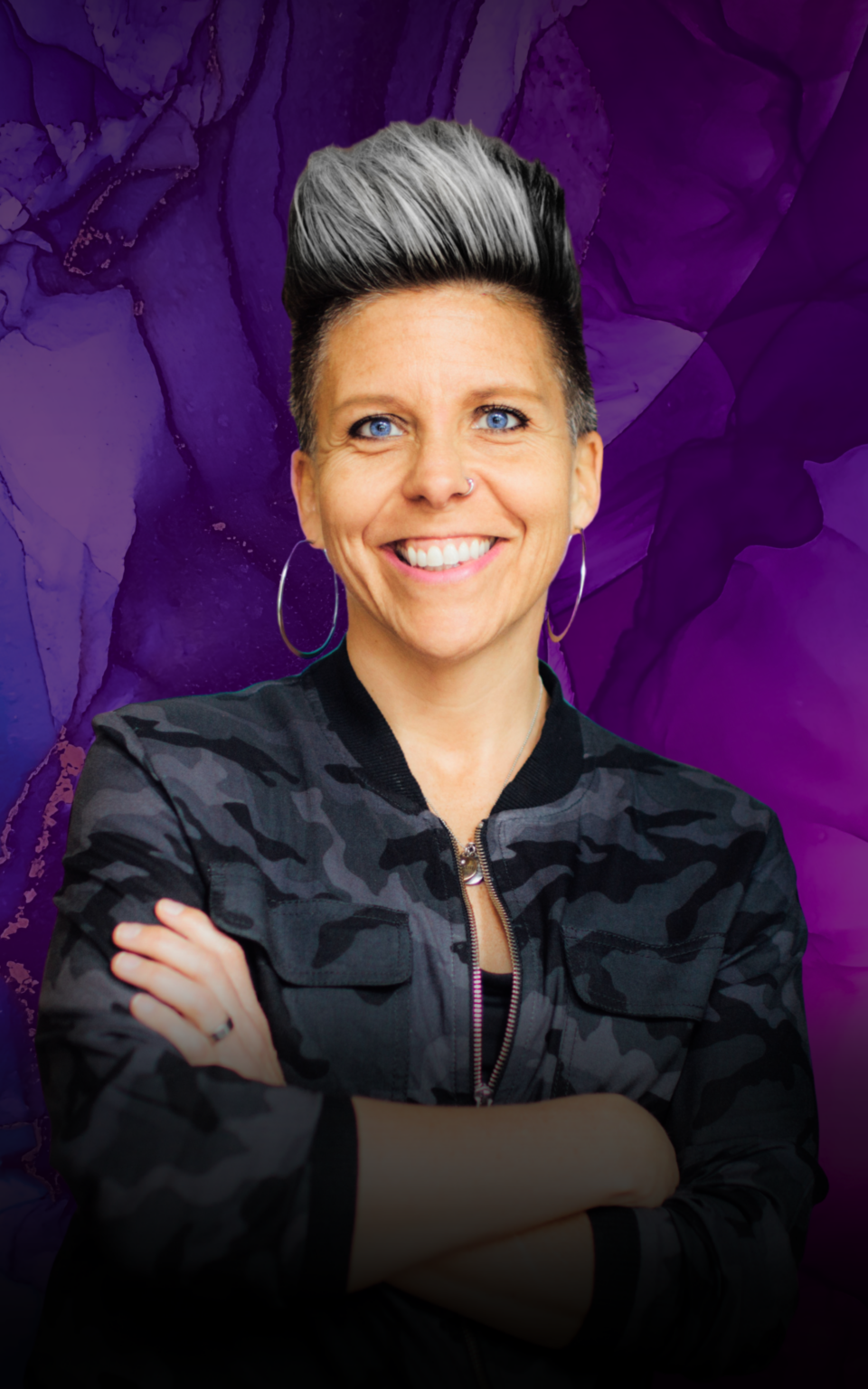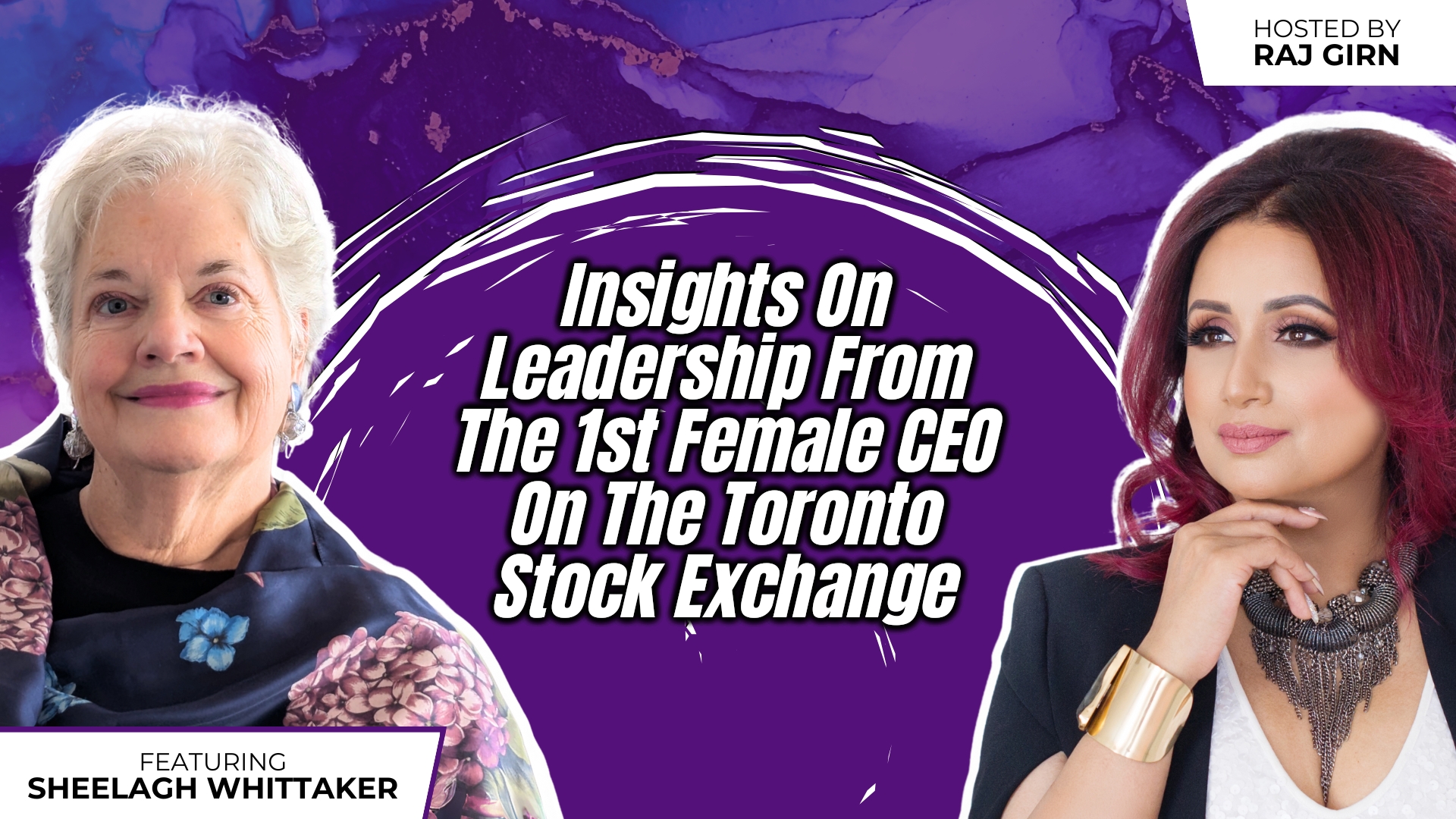
Raj Girn: Hi everyone! Welcome to another exciting episode of the ‘Transform Your Confidence’ podcast, a place where we bring you into our inner circle of recommended leaders, experts, and thought leaders to garner their insights of knowledge and techniques that are working today with the goal of levelling up your repertoire of expertise so that you’re always set up to win.
In today’s show, I’m thrilled to bring to you the incredible Success Story of Sheelagh Whittaker, the first female CEO of a company listed on the Toronto Stock Exchange, no less. We will learn what it was like navigating Corporate Canada at a time when women were rarely seen in C-suite positions, let alone running companies listed on the stock exchange.
TO WATCH:
TO LISTEN:
TO READ, SCROLL DOWN:
Raj Girn: I’d like to begin by first of all, inviting you to subscribe to our YouTube channel at The Open Chest Confidence Academy to view all video versions of the show and also search Transform Your Confidence wherever you receive your audio podcasts, so you never miss an episode, when we launch them every 2nd and 4th Thursday of the month. Please remember that and hit the notification button just in case you don’t remember.
In today’s show, I’m thrilled to bring to you the incredible Success Story of Sheelagh Whittaker, the first female CEO of a company listed on the Toronto Stock Exchange, no less. We will learn what it was like navigating Corporate Canada at a time when women were rarely seen in C-suite positions, let alone running companies listed on the stock exchange.
Sheelagh will be sharing personal anecdotes to illustrate the evolution of feminism in corporate settings, as well as providing us with historical context on women’s advancement in business and sharing some practical advice for today’s female leaders navigating male dominated spaces. It kind of feels like hardly nothing’s changed, but I’m dying to know what the story was like back then.
Sheelagh, I am thrilled to have you on this show. I am so looking forward to an incredible conversation to kind of lean into what you’ve learned about leadership through your unique experiential lens. Welcome to the show.
Sheelagh Whittaker: Oh, well, thank you. I’m delighted to be here, and I’m delighted to try and share anything that I can that will be helpful to others.
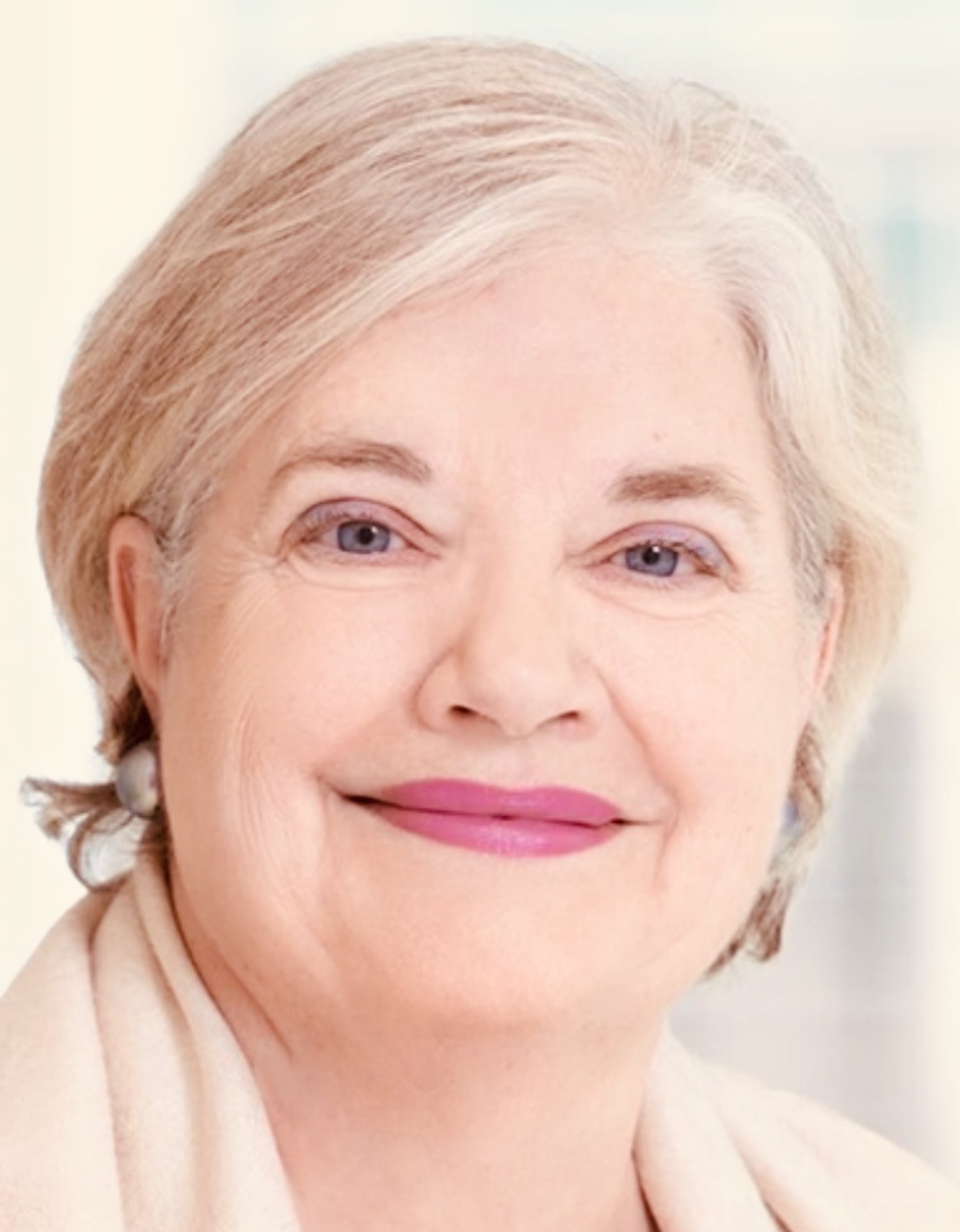
Oh my gosh! So let’s dive in then, Sheelagh. Let’s begin by sharing a bit about the world as it was when you started your career and who you were at the beginning stepping into corporate life in those times. Like set that scene for us.
Well, who I was, and I feel to this day that it was a big advantage, was a girl from Edmonton who was here in the East with some requisite university degrees and an enthusiasm to try new things, which was important. And I must say now that I enjoyed every job I ever had.
And that was one of the – really positive things – was that after I got my first job after my MBA, which was being a Combined Investigation Officer, after that, I really didn’t look for a job again, the jobs looked for me. And that’s a great experience and much less stressful.
You know, it’s so interesting that you say that because, how many women today, Sheelagh, can even say that, that you were saying then. What do you attribute that to?
Probably partly focus. Like I really liked the jobs I was doing and I did them with enthusiasm. And I think that unbeknownst to you, it attracts a kind of attention that when people are thinking, oh, I need somebody to do such and such, then they say, oh, well, she seems pretty interested in this. So I think that makes a difference.
You know, it’s so interesting that you say that Sheelagh, because I absolutely agree with you. You know, I know, from my perspective, as an entrepreneur and the different people that I work with, I oftentimes hire people that may not be quite as skilled, but have massive passion and massive kind of desire to learn and massive belief in the company that I’m hiring them for.
Do you think that may have factored into it? Or do you feel that no, Raj, I had the skills, I had experience, and I had passion and the foresight to understand that I deserve this job.
The way you described it was more accurate. Yeah. I think that – I remember for quite a while and I mentioned this in the book, I was a consultant to the CBC. And it was very – in every assignment was interesting. And after I’d been a consultant to CBC for, I don’t know, a few years, one day the Senior Vice President phones me and he says “Sheelagh, we’re looking for a vice president planning and corporate affairs, you know, and I was thinking I’d give you a call.”
And I said, “Oh, well, great. I will start writing a list of people I think, you know, could be appropriate.” And he said, “No, Sheelagh, that’s not what I meant. I meant you.” And I didn’t expect it. And it was a wonderful job, of course. But it was in Ottawa and I was in Toronto. I said, that’s the only big hurdle.
But with the help of my family and the help with the corporation, we overcame that. And of course, it was a great job.
People rise to the occasion. And I suppose that's an overall highlight when you're doing something exciting, and important to the area you're working in, other people get excited, and they like being involved.
~ Sheelagh Whittaker
Absolutely. You know, Sheelagh, I want to ask you this because I want to kind of set the scene a little bit for everyone watching, listening and reading this. Can you share some highlights from your career and why they stand out for you as successes when you look back?
That’s a toughie, but I’d say, after my MBA, the first job, as I mentioned, was Combine’s Investigation Officer, which is an anti-trust investigation. And if you’re at all like to investigate, or as my sister would say, if you are snoopy, she says, “perfect job for you Sheelagh, you love looking in people’s files and things.” But anyway, so it was interesting, you felt like you were affecting the business structure of Canada and then I had the opportunity while I was there to prosecute a case first of all with a famous lawyer whose name was JJ Robinette who in those days, you know, wasn’t named to conjure with.
Also, it was the first ever predatory pricing case that Canada had pursued. And it’s always interesting to be a first ever, you know? And so that was a highlight, and it was a high light we succeeded. And so it was the first successful predatory pricing case. So that was the highlight.
And then I went from there to consulting. And it was at a firm called the Canada Consulting Group. And they were designed on the style of McKinsey but focused on Canada, which was really great because in those days, McKinsey wasn’t interested in government work. And in Canada, if you’re in consulting, if you are not interested in Government work, you won’t get that much work.
And so we started, and we did a lot of very demanding, I mean, you don’t take this kind of work if you aren’t willing to work 24 hour stretches, but it was very satisfying because, well, for example, I got to work on the Rogers bid for what we call them, cellular telephone. And you know, that was, that’s been a game changer. And doing it was a game changer. And I was telling a colleague at lunchtime that while I was doing that job, I met with, you know, I had a lot of pieces going on and I met, I decided I needed to make it real to those who were adjudicating, this was competitive.
We needed TV ads and radio ads and print ads. So, I met a firm like Victor’s and Vincent, I forget who it was. It was lunch in the King Edward Hotel. And I told him, no, breakfast in the King Edward, I told them what I needed. And he said, “oh, this is very interesting.” And began to sort of think about logistics. And he’s said, and when you’d be needing that? And I said, tomorrow morning. Radio and television and print ads in English and French, and he said … oh… and then the waiter came to deliver the bill and he pushed it over toward me. And he said, I think that’s for you.
Oh my gosh.
They did it. They had this creative for me in the middle of the night reading me radio scripts and they were funny and cute. I mean, people rose to the occasion. And I suppose that’s an overall highlight when you’re doing something exciting, and important to the area you’re working in, other people get excited, and they like being involved, and it gives you a real feeling of accomplishment while you’re working on it.
I totally agree with you. So, at what point did you become the CEO of this company? And please share that, you know put you in another position of being first, like the first female CEO of a company on the Toronto Stock Exchange. Let’s share that story and inspire everybody watching, listening and reading this.
It’s interesting because it flows out of that task of letting the cellular license for Rogers, they were three major partners, and they offered resources and one of them offered a finance guy from Quebec, and he was a senior financial officer of his company, and I liked him and we worked hard together and we pulled together a successful thing.
And then the next job I went on to from consulting was at the CBC, and he came to visit me, but I had told the CBC I would only stay two years. He came to visit me near the end and said, well, what are you planning on doing, Sheelagh? And I said, well, I’m planning, I’m moving back to Toronto for one thing, but I’m continuing consulting. And he said, oh..
And then about a week later, he phoned me, and he had gone, well, it’s a fellow called Pierre Morissette, who’s a wonderful, wonderful guy. He, but at the time he was president of Cancom. And he said, Sheelagh, will you come and work for me? And I said, well, what would I do? And he says, well you’d be the Chief Financial Officer.
And I say, that’s hardly, hardly my resume. And he’s sad, I know, but you had an MBA and you majored in finance and I know you could do it. And he said, I’m a CA so I can support you, even though it’s a public company, but we can cover it. And it’s the job I have right now. And if you’ll come and take it, then I’ll give you something more senior shortly.
Shortly, he confessed to me that he had this dream of running media, metro media, I think it’s called media media, anyway. And he was going to go do it and the board was going to have a meeting in three weeks and he was gonna recommend to them that I take his position as Chief Executive Officer. It was wonderful.
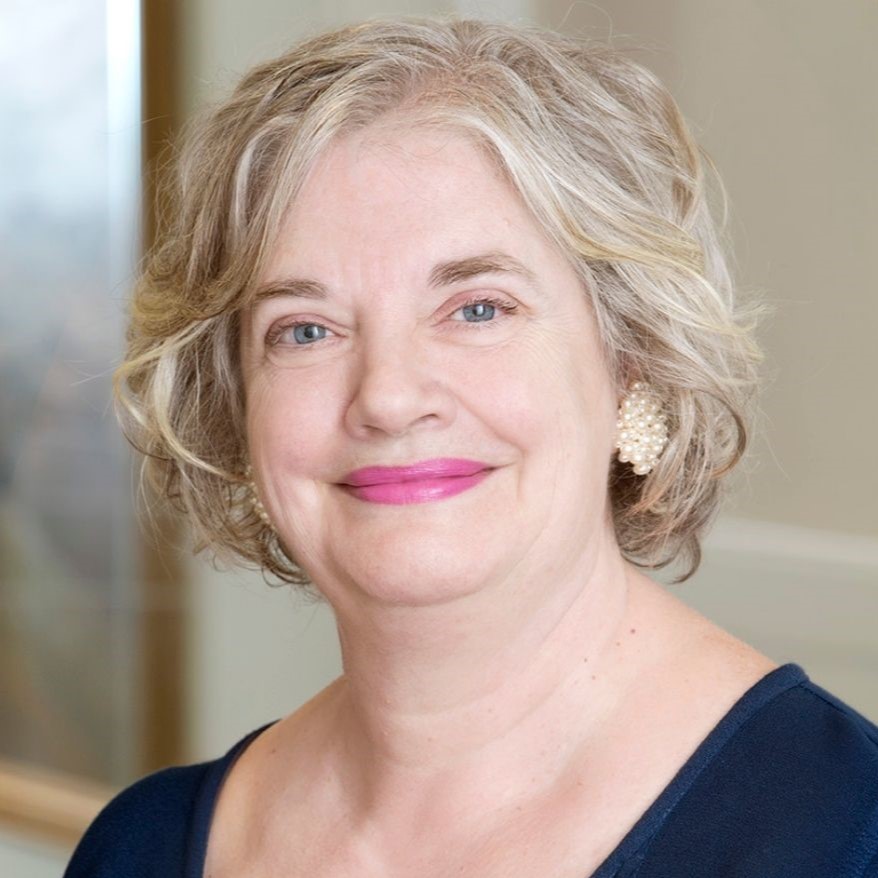
Absolutely. So, knowing that, especially at that time, it’s still the case today, but especially at that time there weren’t that many women in those types of positions. How did things pan out for you in terms of being a woman in such a high leadership position, especially since men needed to listen to you? I kind of want to gage that.
Well, it’s interesting because I’ve stayed friends with the fellow who was my corporate lawyer at EDS and my number two and my communications guy. We were talking the other day and they brought up my leadership style. And I said, oh, you know, I didn’t really think about it. What did you think? And they said, you didn’t try to lead like a man. You led like a woman. And they said it made it so authentic. Because you were leading like yourself. And because yourself were a person who’d say, all right, I need your opinions and what should we do?
And then they said, but then you would decide. You would be democratic, but you understood your responsibility to decide. And they said the person who succeeded you didn’t know how to decide, so it was very flattering, especially all these years later. But I think the essence of it is being yourself.
You know, you’ve really brought up a very incredible and timeless perspective here where trust is gained from being genuine. And that’s really what happened here. Like, you know, this wasn’t a leadership style per se, but more so a DNA within you. Like, you knew that you needed to make a decision, but you wanted to make the right decision. And the right decision comes from discourse, comes from discussion, right?
Yes, it comes from, we were talking today with some old business partners about genius and business genius. And I said that the definition that I really liked was Einstein’s definition: “And it is to see what everyone else has seen and to think what no one else has thought.”
That is a brilliant one.
It is so powerful.
Yes. Yes, that’s exactly what makes powerful leaders. So, I want to ask you this, Sheelagh, because this is a great point for me to ask this question. Can you share what the main challenge was that you had to overcome in order to claim the confidence because there’s confidence, and that’s a big part of this as well.
You needed to lean into where you know that you deserved this position you knew that you deserved to be the person that made the final decision because you were in this position. You had to do that job. So, you couldn’t be feared. You couldn’t create fear around it.
I wasn’t afraid I was gonna lose it, no.
But even today, statistics show that so many women who are qualified to apply for positions don’t because of a confidence gap and not a competence one. Your comments.
Well, I think one of the things is that I was never afraid to lead with my deficiencies. I was never afraid to say to someone who was trying to lure me into a job, okay, I like that. I think I can do this. I’m not very good at that. And I said, you know, then I’d say I will work on it.
For example, when I went to work for EDS, I didn’t know how to use a computer. Now, EDS in Canada at that time had, you know, between 4,000 and 6,000 people working on computers and in the world, a lot more. And so when I was with the head-hunter, I said, oh, no, with the executive from the States, I say, it’s a nice job and you think you want me and yes, I am CEO on the stock, you know, all that stuff, I don’t know how to use a computer.
And they said, Sheelagh, we have 140,000 people who know how to use computers. We hardly have anybody who’s good at strategy. And so we’re not hiring you. So, the thing is that I was never afraid that somebody would whisper to somebody or somewhere that I didn’t know how to use a computer. And I didn’t bother to link for quite a long time because I had made full disclosure.
Did you think that’s the key, Sheelagh, because even today with the stats being what it is, women genuinely don’t think that they’re qualified to apply for a job, unless they’re 100% have all the check marks, whereas men comparatively speaking, if they’ve got around 60% of the check they’ll apply.
What is that? What is that kind of gap in confidence? Can you help? Break down what it is that women need to maybe step into to feel the confidence to do the thing that they know they deserve to do but they don’t do it because of lack thereof.
Giving people an opportunity first of all in, say, a group situation making sure that everyone has an opportunity to contribute, is a big deal and then validating what those people say or do or think is important.
~ Sheelagh Whittaker
I think that’s a very good question and I think you’re totally right that many women who are very confident, I mean who are well qualified, don’t feel confident. I was going, it’s funny. I’m one of these people who hums things to herself. And one of the things that I hum is a song that goes, I have confidence and confidence alone, and as you can see, I have confidence in me.
Remind me where that’s from again. It is. Oh my God. Is it not Mary Poppins?
No, no, the one….
Oh, my God, I’ve seen this movie a million times as a kid.
Me too. Me too, and I love it. I think it must be Mary Poppins. Yeah. OK.
Yeah, I’m going to have to go check that out. I need to know.
I really like Julie Andrews, and I really liked her presentation and, in a way, oh you know it might be in The Sound of Music. The Sound of Music with yes, yeah, Julie Andrew, but she’s also in Mary Poppins but it might be, it’s probably in The Sound of Music.
Yeah, okay yeah I’m going to have to go check that out. And in a way, The Sound of Music is a story of a sort of nun who’s brought in to manage a large and complex family. And she develops her own style. She doesn’t parrot the style of the father with his whistle or anything.
So, when you hum this song, is this like an affirmation for you? Is this a reminder to you? Is that why you hum it?
It’s a reminder. It’s a reminder. Yeah.
So, do you feel that women need that? You feel that women need to maybe do a bit more work around reminders as to why they’re good enough? Reminders as to what are the things that are holding them back from being confident? And confidence is needing to action something, that they need to maybe do a little bit more work around that.
Around affirmation. Yes, I can do this. Yes. You know, I have done this, I can do this, yes, yes. Because I don’t know if it’s our culture or what, but I think we aren’t accustomed to the affirmation part as much.
And yet, when you listen to, say, great athletes, say, a woman who’s running faster or higher or stronger, in her mind, she’s saying, I can do this. I can’t do this!
Absolutely right, so in your experience, how is female leadership? We’ve touched upon it, but I feel like people need to hear it from your experience. How are female leaders different from male leadership? So, we can put that on the table next.
You see, I don’t think they are. I think we should think in terms of individual leadership.
Ah, I love that.
Individual, I am the kind of leader that I am, but my sadly departed husband, he was an outstanding leader, but he was very different than I was, but he was very different from other men too.

I love this. So, what you’re saying here, Sheelagh, is don’t get caught up in identification. I’m a woman, I’m a woman of colour. I’m a woman from this part of the world. I’m from, I am woman… And just hone in on what my attributes are? What are my skillsets? What are strengths? And just really hone in on who you are as an individual and take that into stepping into your life.
Exactly. I can do this. I was talking at lunch also, it was lunch with my bankers, it was really fun. But my granddaughter, who has just finished her second year in chemical engineering and is doing a co-op right now, is doing co-opt where they are. And I said, you know, one of the things that I admire is that she’s this hardworking, focused, attractive, confident young lady, and she’s just going at it. And it’s lovely to see, and I think we are seeing more of that.
Absolutely. What would you say to women, and then I want to talk about your book, because I feel it’s a perfect segue. What will you say to women who perceive certain aspects of their life to be negative for them to be able to move?
And I’ll give you an example, like outside of being woman versus man. Maybe a woman that isn’t as highly educated as another woman. Maybe a woman that comes from a certain cultural background that may not be as forthcoming with stepping into her strengths, right? Certain cultural ethnicities.
Maybe she doesn’t have money or etiquette. These are all things that we look at in order to feel like they could potentially stop us or make us less than. So therefore, maybe we shouldn’t.
Yes, you’re right. I think you’re right. And I think it is a role for systems to encourage, for education to encourage. For people to point out, you know, look, Beth, you did that. There’s a huge role for education and teachers.
Absolutely.
I was just going to say most of them, like the ones that I meet or know, they’re trying, they’re trying to it. They’re trying to encourage everybody.
Absolutely. And I feel that we are starting to turn corners because we are starting to have these conversations. And we’re starting to normalize these conversations that every attribute that we have, it’s the perspective of how you look at it. Right?
Like, you know, I am made up of all these things. Now, what are the advantages of all these things versus I made up all these things? And how are they holding me back? How do you flip the narrative to make sure that whatever makes you who you are, the reality of it is that that is who you. Now, what am I going to do with it to make that my life moves forward in a positive manner?
So again, we come back to affirmations, we come to a mindset shift that’s necessary. And I feel that confidence is a big part of that journey. For anyone, especially with women. Any examples you can share there? Like, have you seen that as a leader yourself in the workforce with women that have worked in the company? Does anything stand out?
I think that giving people an opportunity first of all in, say, a group situation making sure that everyone has an opportunity to contribute, is a big deal and then validating what those people say or do or think is important. I also think that there are always sort of sub jobs that people can help us with and selecting people who seem to have a skill but not the confidence to help you with a sub job where you’re still in you don’t have to be nervous it’s going to turn out you’ll still have control if they can’t do it but giving them the chance to perform is a big deal.
Feminism is the desire to establish equality.
~ Sheelagh Whittaker
Yes, you’re absolutely right, giving them the opportunity to do the thing that, and I feel that this also comes from having just that extra insight as a leader and what actually makes a good leader is seeing things in people you work with that maybe they don’t see and understanding where that opportunity can be supported. Also, I feel that it makes for a very strong and powerful leader. Your thoughts.
Well, I totally agree. And I also think short-term, long-term. I think short-term, if you can put someone in either a short-term course or an opportunity with a customer or something where they’ll gain, even if they’re valuable and you’ll miss them, it’s foolish not to do that because overall you win. You even win if they decide they like the company that you’ve put them into. Because you’ve got a supporter for life for your company. Because you’ve helped them along. And that makes a big difference too.
It absolutely does, I agree. So great segue, Sheelagh, for us to talk about your newest book. You’ve written several books.
Yes, I have.
From your experiences. The latest one is called Through the Glass Ceiling, Reflections on Feminism from the C-suite. I’ve got to say, what a fabulously provocative title. Before we dive in, let’s just tell people immediately. Where can they go grab this book and any of your past books? Let’s just put that on the table before we move and dive into the book.
Well, there is a site that my son, who is an AI specialist, created for me, that’s just sheelaghwhittaker.com.
SheelaghWhittaker.com, perfect, it’s your name.
And your podcast will be on this site, and a portal to order the book is on the site, reviews, at least good ones, are on the side.
I love your honesty.
So that’s easy. Otherwise, you know, Indigo, places like that, carry it.
Perfect. And folks, if you take a look at the bottom, you can see how Sheila spells her name. It is the Irish spelling of Sheelagh. So, make sure that you get that right when you go to sheelaghwhittaker.com.
Okay, now I’m dying to ask you, I want to know what the book’s about. But before you break it down, let’s get one thing clear in everyone’s heads, because the title prompted me to ask you this before we start talking about the book. According to you, Sheelagh, what is feminism?
I’ve thought a lot about this, not surprisingly, over the years, and what I’ve come to is that feminism is the desire to establish equality.
And what is equality?
Equality means, well you know there used to be this song that was a children’s song free to be you and me And it was that mummies are people, people with children. And daddies are people. People with children. And it’s about recognizing that we’re all people with capabilities. They’re not identical, but the outcome can be a sense of my aggregate of abilities.
Properly honed is as good as your aggregate of capabilities and we have to find and help each other find the way to use those capabilities and not to minimize or contain somebody’s capabilities to say they’re a woman or whatever but to help everybody maximize their capabilities.
I know that one of the things that I get teased about by my kids especially, because I’m often quoted as saying this, is that I think we’ll have true equality when we have as many incapable women in positions of seniority as we have incapable men.
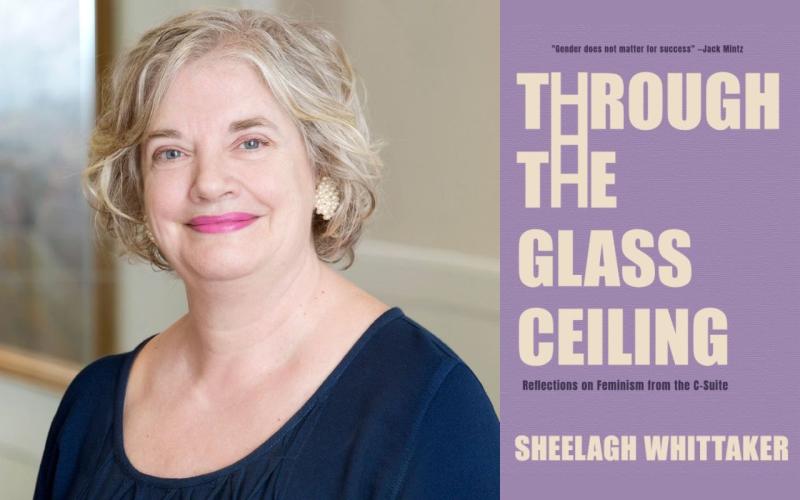
Oh my god that’s so true you should put that up on your website, if you haven’t already done that, Sheelagh.
Because the point is, you know, all women don’t have to be amazing. All the men aren’t amazing.
I think that’s fantastic. So, let’s crack open the book. Let’s share with everyone what the book’s about. Like, what is it about and who is it for?
Well, what it’s about that through my career, which now at this point has been fairly long, I experienced wonderful help. Terrible events, fascinating events, and there used to be a book called Pilgrim’s Progress, where the pilgrim was making his way along. And I remember, the main thing I remember is he fell into the slew of despond. And I can imagine falling into the slough of despond.
So, it’s about me personally making my progress through life as a complete person. Is a feminist, but is a mother, is a writer, is a strategist, is a good friend, all those things. And what kind of spurred it was that I had quite a serious operation. And so, I had a really nice PSW, a wonderful Jamaican woman called Trudy Ann. And I would tell her, you know, stories about stuff because I was lying horizontal. And she says, these stories are good. You have to write them.
And she went out and bought a scribbler. She brought a scribble and she brought it back to me. And she said, here, you write down those stories. Now I didn’t particularly, but I thought about what she was saying. And then when the publisher of this book, the publisher of Sutherland House came along, he said, Sheelagh, I’d like you to write a book. What could you write about? I said, oh, well, Trudy Ann said I should write a book about breaking the glass ceiling and he said, yes, that’s what I want you to write a book about.
Because one of the things we speak about breaking the class ceiling as aspirational, you don’t very often hear what happened next. Was the woman so proud of herself that she floated away on the tide of euphoria? Did her children revile her because she wasn’t there for their school play, you know?
So, the point was in Through the Glass Ceiling was getting through and then having the chance to look down and around. Or at one point I said it’s turning the glass ceiling from a ceiling to an observation deck. You can see what the opportunities are, what people are trying to achieve. But also, the whole shape of it, the whole of human interaction, including families and including work forces and the like.
So, in a nutshell, Sheelagh, what can someone expect to get from this book?
Well, at maybe this, a fairly simple level. For example, expect to be disliked sometimes. Absolutely or if a decision seems impossibly hard to make. Don’t make it, don’t force it, that kind of thing. So, at a simple level, kind of as you go through, there’s ways of confronting things that are hard to deal with.
There are also, what I decided that would be really useful was to embrace others. What do we call them, demographics. So, for example, my sister, who was hugely, hugely influential to me, she’s part of what they call the silent generation. She was born in 1938, before the war. And then my dad went to war in 40 and she didn’t see him again till 45. So that’s, and plus, you know, when she went to university, she ultimately became a lawyer, but when she first went to university there were no women registered in law, you know. So, I had her right apart from me.
I have a best friend in my building here who’s 97 and she got her PhD in 1948. She’s part of what they call the greatest generation. Yes. So, I have her write a piece for me on how it was to do that. Uh, my daughter. Who will be turning 50 in four days, and I better not forget. She’s part of, let me see how to go,
Gen X, she’s a Gen X. And I had her write a piece on what it’s like to be a GenX and a bit about what it is like to have a feminist mother, a bit. And then finally the end of the book is my – I have a granddaughter who lives in New York who is 17 and I had her write about what’s pretty stale, old hat stuff. Feminism is yesterday, but what matters to her. So, I wanted a set of perspectives and how people dealt with them and how they felt about how they dealt with them. So that’s an important part of the book.
Absolutely. So, what do you hope when you put this together? What do you hope, optimally, the reader’s going to get out of this book?
First of all, probably, I hadn’t thought of this before, but probably I want them to think it doesn’t have to be so blasted serious. It can be fun. Look at her. She did some pretty stupid things along the way, but she had fun.
We'll have true equality when we have as many incapable women in positions of seniority as we have incapable men.
~ Sheelagh Whittaker
But she also did some fabulous things.
Yes, I did some fabulous things! And so, it’s sort of a general feeling that it’s not all sacrifice. It’s not, oh my God, I hate leaving my two kids at home with the nanny while I go out and work. Instead, it was being realistic about myself. I realized that when I first hired a nanny, I think I was earning $14,300 a year. I thought if I had to pay all $14,300 to the nannies, that was fine because I wasn’t doing it. I was doing it because I was better out there doing my kind of work and she was better doing her, and we were both happy and it was good for the GDP too.
Yeah, of course, of course. Always a win win win all around which is perfect. So Sheelagh, I want to ask you this. One more question around the book. Who is the book for? It sounds obvious, but I want you to state it.
The book is, well, it’s funny. If you’d asked me what the target market was, I would have said sort of 30-year-olds, male and female, who are trying to sort out how, you know, millennials, kind of. That’s who I thought.
But?
Well. I presented it to my bridge club who are more like the silent generation and they read it and they loved it. They loved it, it was as if they were able to put their life in perspective and think about what they’ve done. But it isn’t judgy. It isn’t a judgmental book. It isn’t that you should have done this.
It’s presenting perspectives that are varied for you to see what actually shows up for you in that book.
Yeah, I feel that. So, I want to go around this, I want to loop back to a few things that I feel are going to be very valuable for everyone. And one of those things is, how can women move the needle in leadership success today? So, let’s bring it back here.
Because between the confidence gap that we talked about earlier and the perceived rarity of positions for women at the top, there’s a perception, but there’s also a reality in it. That’s not the question. There truly still are so few women who are at the toppers compared to men.
I think that I’ll give you an example. When I was working in Britain, Britain was kind of behind Canada in feminism. So that was interesting to me. But one of the things, you know, they were getting all, the government was getting all raw on everything. And they decided that there weren’t enough women on boards and that there should be a target of 30% of women on board.
And my first reaction was, why 30? Why, if you’re aspiring toward an egalitarian situation, would you not say 50? So why give away some of your leverage upfront? I mean, maybe you’ll only get to 30 and they’ll think, wow, we almost made it 50, you know what I mean? But don’t compromise before you even start. Uh, so one of the things, by the way, the males that have read this book, uh, my brother was important. He’s a, well he’s retired now, but he’s a professor of mechanical engineering. He just loved it. Like men love this book.
Why do you think that is? Is it an insight into the female mind across many perspectives, right, because that’s the reason why men like to read women’s magazines. Like, you know how they used to say that men love reading cosmopolitan. So, do you think it’s a similar kind of scenario?
I think it’s a similar kind of scenario. It gives them ideas as to how to make things work, but it’s also it’s.
Okay. And men love humour. Yeah.
Yes, men love humour, I make fun of myself. I make fun of others too, but I make fun of myself. It’s not preachy. And it is, it’s unisex in its aspiration.
I love that. I love that. Oh, guys, so you know you need to go get this book, right? SheelaghWhittaker.com. Go grab this book. Sheelagh, do you have your other books also on sheelaghwhittaker.com?
Yes, I do.
Okay, perfect, so that’s all you need to remember, guys. Just go hop on over there. I think that this book definitely sounds very intriguing to me. How did you come up with such a cool title? Because the title alone makes you want to read it.
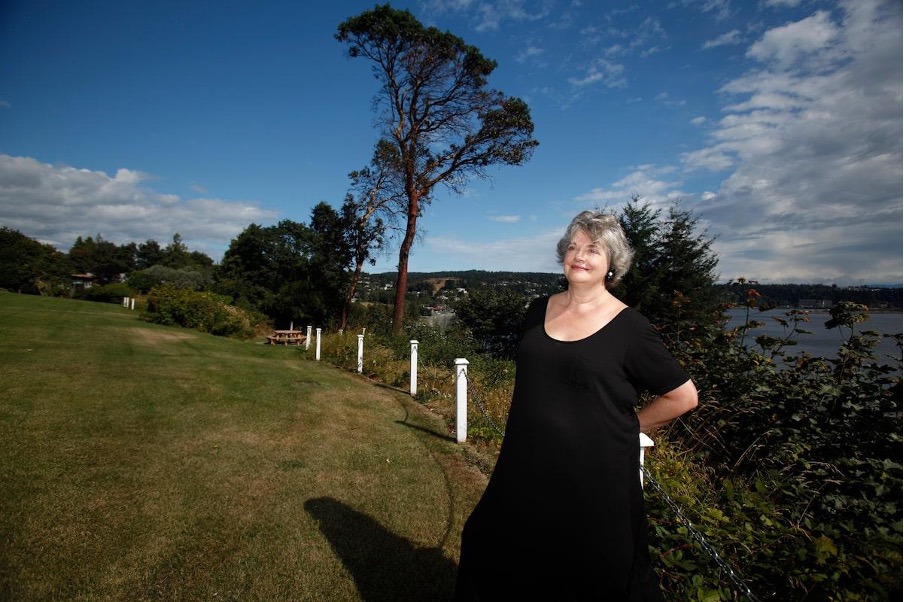
That’s a good question. I came, like, I make squiggly little notes and I came across a piece of paper just a couple of days ago that had a whole bunch of title ideas on it. It was kind of like brainstorming. And I just looked at it and I thought, yes, though. It’s through the glass ceiling, you know? It’s not. You know, when I first started thinking about it, I was thinking about the ladder and climbing the ladder and all, and then I thought about, I don’t know if you can see her, but there’s a lady on the line.
Yeah, I can see, I’ve been looking at her.
She’s one of my very favourite sculptures and she’s sitting on the top of the ladder looking weary, which I think is a good message to it.
It is because you can get to the top of the ladder, but you sure you want to be there when you get there because it can be quite lonely, right? Well, or tiring.
Yeah, but a combination of both. Sheelagh, this just brings me to another thing, because you know you as a woman that has had this really interesting and unique career, you’re also a wife, you’ve also been a mother, like all of these roles, when you look at women in your position, who have gotten up that far up the ladder, the woman that’s sitting at the top there.
And you have all of these other roles as well. How do you navigate it all because that’s the other thing that I feel is very challenging for women Is that they feel they need to choose? And they feel guilt. And these are things that men don’t feel so can we?
Yes, yes. One of my phrases that I use sometimes is ditch the guilt, ditch the guilt. But what I would say is, you know, I am a triumph, a delegation. I know how to delegate from making dinner to taking the kids to school. I did the things I was the best at and I let my kids’ father or the nanny do their part. Or I let them figure out their own way.
My son Nicholas, who’s my youngest child, writes in the book that one of the things I asked him, write down for me, what did I teach you? Kind of one of the things that he wrote down was she taught me net present value and I thought well not everybody would have that kind of answer but he found it very useful.
You know, I find that so fascinating. Even more reasons to read the book, guys. Oh my gosh, do you have a copy of it that you can show the cover?
There it is, there it is guys, Through the Glass Ceiling, Reflections on Feminism from the C-Suite by Sheelagh Whitaker. Oh my god. You know, I need to get a copy of this now, Sheelagh. I’m so intrigued that I want to read it.
Oh, good.
Absolutely. So let me ask you something here that I think is really important. Typically, women go through three main phases of work. One is kind of the pre-baby career of a woman. Then there’s that coming back from having babies, whether it is maternity leave or whether you’ve been, you know, a stay-at-home mom, right? And then there’s the retirement chapter, where we don’t ever really retire or do we?
So, I want to ask you this. What advice would you give to women in each of these three phases so that they could live their optimal life from what you have experienced?
Stay in your lane of what your experiences are, what your resources are, what your aspirations are, what your specific circumstances are, and do the decision that makes most sense and by blocking out what other people's perceived perspectives would be on the decisions you make in your life.
~ Sheelagh Whittaker
The advice I would give is to think about what they personally, how they personally want to handle the situation, not the prescription, not someone else’s notion of, not your mother-in-law’s notion that you’re supposed to stay at home with the baby or something, or not someone else’s eyebrows raised over some role.
I would say to try and think through these various roles and to modify them to meet your own needs. One of the things I think I mentioned in the book is that when I was studying for my MBA, I found myself pregnant. And it turned out that the baby was going to be born between my final exam and graduation.
I thought, oh, well, okay. So initially when professors sort of noticed that I was getting a little large, I mean, they just kind of had to take it in their stride. I wasn’t apologizing. And actually the baby’s father was also taking the same degree as I was. So, the two of us were there going through it.
And I remember in the finance final; we had a desk in front of us. It wasn’t, and the baby was eight and three quarter months, and she kicked the final off the table. Everybody rose and I said it’s okay I just have one more question to go and I went and got it and answered the last question but that was because I had decided personally that I was comfortable with that.
But I didn’t have complications or anything. If I’d had complications, then I would have decided personally what was the best way to do that.
I understand. So really the big takeaway here, Sheelagh, is stay in your lane of what your experiences are, what your resources are, what your aspirations are, what your specific circumstances are, and do the decision that makes most sense and by blocking out what other people’s perceived perspectives would be on the decisions you make in your life.
Yes, yes that’s very apt because in this particular case I was taking social issues in marketing when I when I was probably seven months pregnant and I had a really nice professor and he laughed and said to me, you know, someone asked me if I had any women in my marketing class and I said Yes, I have a woman and she’s pregnant.
Now, some years later, he told me the same story. He forgot he told it, but this time he said, yes, I have a woman. I had a woman back then and she was pregnant, and she was unmarried and I thought that’s interesting. You edited it the first time. That was good. Yeah, he’d grown comfortable over the years with the circumstance.
Yeah. I love that. And so, you know, so let’s talk a little bit about men before we close off then, Sheelagh. We’ve talked a lot about what women need to do to navigate a successful career of their making. That’s the important part.
Can we also look at what men can do to ally this, to create support and equity to their female team members? You know, because we talk a lot about women, but there’s also that other side that needs to create space for that to be possible as well.
So we’re not always pushing and shoving against a wall. And I say equity rather than equality because I don’t believe that men and women, just as you mentioned earlier, need to bring the same things to the table, but rather I believe that what both bring to the table needs to be valued equally.
Yes, I totally agree. I totally agreed. And it, you know, there is a reaction right now, there’s an anti-feminism reaction. But in fact, feminism is liberating for men. Because it gives them the opportunity to put forward what they want. To say, okay, I have always wanted to try writing. And if you want to have a baby and go back to work. Maybe I’ll stay at home and write and watch the baby or whatever.
Or it puts a layer of realism into your situation. Like I married my husband when I was, let me see now, he was 50 and I was 41. And I realized that I could not have married, I couldn’t have married him earlier. Because he was very driven in his career. And he wouldn’t have had the time to pay the attention to me that I needed. Whereas meeting him in later life, when I was starting to peak, he was very happy. He said, I’ve been successful. I don’t need to worry about it. I will focus on helping you. And every couple has to have a different, you know, every couple, has a different solution.
But it’s liberating if both of you have a set of aspirations that you can kind of talk about and support and say, oh, well, okay, maybe we can’t do that this year. Maybe we’ll do it that year, whatever.
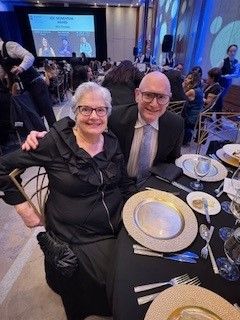
Absolutely, so based on that, advice for men in the workplace and at home, on two fronts, because that’s too general a question on two fronts.
One is to support their lady. And the other is to do what they truly want to do. And not feel like they have to be the breadwinner. Yes, that’s not what they want to do. Like this, it’s complicated for men as well.
Well, exactly, it is complicated for men, I totally agree, and the part that isn’t emphasized enough is that it is liberating for men to, or it can be, if they want it to be. In a way, back to being free to be you and me, the point is that there are men who are stuck in jobs because they think they need either the status or the money to do that job and they don’t like it. And they should be allowed to say, look at I’m not comfortable in this and to do something else.
And this is where women need to give grace and space, and take on responsibility. I mean, some of it is sharing. Sometimes for a while, like I made a move that I wouldn’t necessarily have made, but it was better for the kid’s father. But that seemed fair because he’d done things for me.
Yeah, yeah. So for us to wrap all of this up in a beautiful red bow. You know, it’s funny because in my mind I thought pink, but I said red, so you must have heard me. I did hear you. Yeah, you heard me!
Is there anything Sheelagh that we haven’t talked about, whether it be the book, whether it’d be Women in Leadership, whether it be how to navigate today’s world so that you can make the most out of your life? Can you share what maybe we haven’t yet shared?
Well, as you were speaking, I was running my mind over, say, my sister who became a lawyer when she was 38. That was what she had wanted to do. She, unfortunately, I think, now that she’s much farther off, is disappointed that she couldn’t have done that sooner.
I think some of the people find their calling. I’m thinking if we could encourage people to recognize that it is worthwhile to try and find your calling earlier and also to maybe shore it up, maybe, you know, take some courses or because whatever, improve your qualifications or get help or whatever, that then the males could be happier because they could actually feel more personal freedom. And the women could be happier because they could feel more in control of their own life.
That’s so interesting because. It’s like men had all the pressure over here, traditionally speaking, women had it over here. Men want less of it, right? Like they shouldn’t feel like they need to, it all needs to be on their shoulders.
Exactly.
And then the women shouldn’t think that all they’re worthy of is one element when they also wanna move into this arena. So, it’s just like this thing that’s going on that we should allow to go on.
They shouldn’t feel that all they’re good for is a circumscribed role. That they’re good for more than that. And that the men should similarly feel that they should have more opportunity to realize themselves. Some of the self-actualization movement, which was very big when I was studying for one of my degrees, really had some of the right ideas.
I agree with you completely because it shouldn’t be gender based, no, like self actualization has nothing to do with gender. Exactly. It’s the constructs that we’ve created in our lives that create the segmentations that we created, whatever they are in this world, and there are many.
And if we focus more on self-actualization, I think we wouldn’t get so bound up in LGBT LNOP because self- actualization would embrace that as normal.
But in fact, feminism is liberating for men. Because it gives them the opportunity to put forward what they want.
~ Sheelagh Whittaker
Absolutely.
And that would be nice.
Well, there’s a podcast topic worth talking about, right Sheelagh?
Yes, that’s for sure.
We’ll have to have you back on, won’t we? So any final words that you want to leave people with, any words of wisdom, any looking back on your life and seeing kind of how things are today, any final words of wisdom that you’d like to leave people with because people always generally live their lives moving this way until they’re in a position and they have the fortune to look back to be able to look this way.
I think that it’s all bound up in what we were talking about, self-actualization and I think people should take the opportunity to be free to be themselves.
And whatever it takes to get there, we should feel supported as well in all of the mechanisms.
And we shouldn’t be supporting. Well, while we’re trying to be ourselves, we should help others too.
Absolutely. What a great way to end this conversation, Sheelagh. If anybody wants to hang out with you, where should we send them? Like LinkedIn?
Yeah, LinkedIn‘s a good start.
Perfect. And don’t forget, folks, you got to go over to SheelaghWhittaker.com and go grab that book that we’ve been talking about and also take a look at the other books as well, because I’m sure that once you get a hold of one of them. You’re definitely going to want to see a lot of the other things that Sheelagh imparts on the world as well, right Sheelagh?
Because I’m not a one-topic person. For example, my first book was about a murder of a toddler in 1885.
Oh my gosh. I’m telling you are such an interesting lady. She’s so diverse and so, you know, like many layers to who you are. And I, I’ve loved this conversation with you.
I want to thank you for being on the show. And, I know that people are going to glean so much wisdom from this and are going to be intrigued to want to read the book.
Thank you very much and let me know how you like it.
Absolutely, absolutely. Well, folks, that was the fabulous Sheelagh. If you would like to learn more about her and also pick up the book, let me remind you again, the book is called Through the Glass Ceiling Reflections on Feminism from the C-suite.
It’s the last in a series of several books that have been written by Sheelagh. You can go grab them at SheelaghWhittaker.com and I will see you next time with another insightful episode of the Transform Your Confidence podcast, which if you enjoy today, go give it a five star rating now before you forget and tell everyone you know to come hang out with us here.
I certainly will. That’s the other thing we should say is don’t be afraid to congratulate yourself. If somebody asks you to grade yourself, say, well, I think I was an A.
Thank you, Sheelagh. And I will see everyone next time with another insightful episode, just like this one. Transform Your Confidence, the podcast folks, you can go hangout with us on YouTube at The Open Chest Confidence Academy. You can also go to The OpenChestConfidenceAcademy.com to sign up for our freebies, our free newsletter. Be a part of our community.
And please stay connected with us on our socials at @The Open Chest Confidence Academy and theopenchestconfidenceacademy.com website where you can find out different ways that you can work with me and our team. See you next time.



